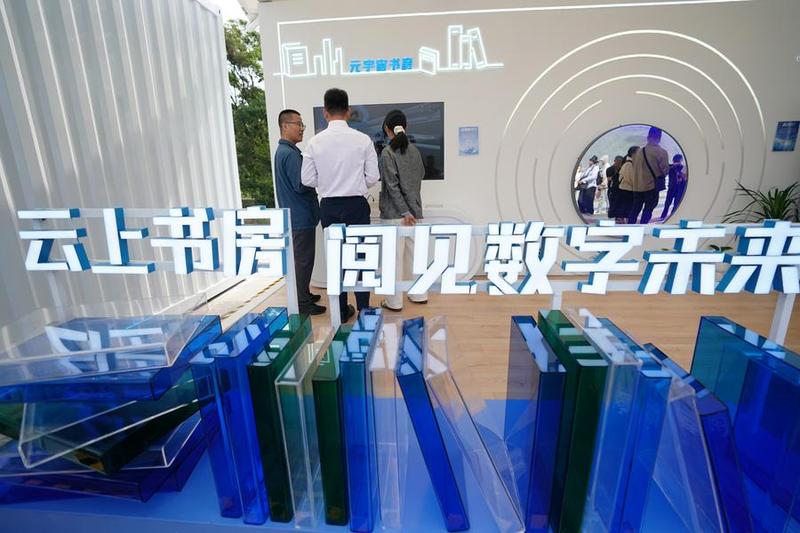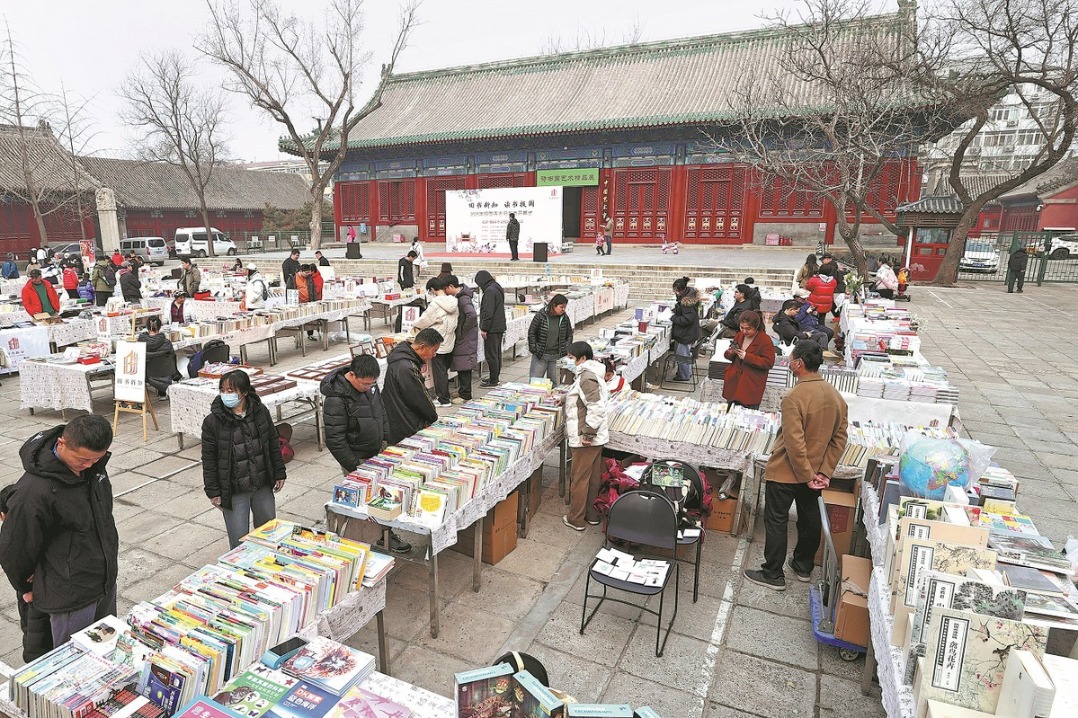AI transforms deep reading in digital age


BEIJING - In a classroom in northeastern China, students are holding conversations with Confucius — not through seances or historical reenactments, but through artificial intelligence (AI).
At Hunnan District No 9 Middle School in Shenyang, Liaoning province, students use AI-powered software to interact with avatars of literary giants like Confucius and Lu Xun. With each interaction, these historical figures shed their textbook stiffness, becoming vivid, almost tangible guides in these students' literary journeys.
"AI is not just a tool here, it's more like a guide and a mentor," said Zheng Jun, the school's principal. "It helps students crack open the classics and explore the depths of their meaning when they hit a wall."
These immersive reading experiences are part of a rising trend in China, where deep reading — once confined to libraries and lecture halls — is being reshaped by digital innovation.
According to official data, China's digital reading user base totaled 670 million in 2024, up 17.5 percent year-on-year.
Yet, as convenient as digital tools can be, experts warn of the challenge of preserving depth in an era of shallow, skimmable content.
For Nie Zhenning, head of the national reading committee at the Publishers Association of China, digital technology and deep reading are not opposites but partners in a new reading paradigm.
"By leveraging digital tools, readers can build their knowledge base in fragmented reading time. In this way, AI is breaking down barriers and injecting fresh energy into the pursuit of deep reading," Nie noted.
For the increasing number of readers with high professional or academic reading needs, Nie's observation rings especially true.
Among these readers is Liu Shuai, a doctoral candidate in the field of classic Chinese literature at East China Normal University.
On his computer screen, faded pages of a centuries-old Chinese manuscript flicker to life. On one side are fragmented, yellowed images from ancient Chinese classics, and on the other are crisp lines of searchable text, deciphered by AI with stunning precision.
Liu uses the digital reading platform named Shidianguji. Launched in 2022 by tech giant ByteDance and Peking University, the platform has digitized more than 18,000 Chinese classics and made them available on mobile and web platforms.
"Anytime you want to read (a Chinese classic), you can click to find it. If you find the ancient version difficult to read, you can click on the annotated version in modern Chinese, even with phonetic notations for ancient characters. Some people use the platform to research the history of their birthplace recorded in ancient books, or to look up their family trees," said Wang Yu, who is in charge of the platform's development.
Behind the interface is a powerful AI system with over 96 percent character recognition accuracy and up to 98 percent named entity recognition accuracy. With support from apps like Douyin, which is the Chinese version of TikTok, and Doubao, ByteDance's large language model, these once-esoteric classics are now just a click away for millions.
"This is not just digitization, it's transformation," said Wang. "With AI, we're teaching machines to 'read' Chinese classics, making the inaccessible accessible."
But perhaps the most transformative aspect of AI reading is the human-machine collaboration driving this renaissance of classic Chinese literature.
With AI tools to hand, more than 10,000 students and teachers at nearly 1,000 universities across China have become modern-day "scribes," and are helping AI refine and annotate ancient texts. Many of them major in fields unrelated to classic Chinese literature.
To date, more than 1,600 ancient texts, totaling nearly 200 million characters, have been edited, annotated and shared through this AI-human collaboration.
"Once, I thought this work was endless," Liu said. "But with AI, not only is it possible, it's participatory. Ancient books are no longer locked away for specialists. They belong to everyone."
"AI and humans complement each other during reading," said Wu Guowu, deputy secretary general of the Ministry of Education's National Commission for Ancient Chinese Classics Editing and Research by Institutions of Higher Learning. "Experts feed AI with deep readings. AI, in turn, assists scholars and enthusiasts alike, forming a virtuous cycle."
Zheng Jun shares Wu's sentiment. "In the past, reading was just a one-way interaction between a student and a text," Zheng said. "Now, it's a dynamic, multi-dimensional process involving AI, teachers, students and the text itself." The new model, the principal added, sparks greater interest in reading among children.
AI may be reshaping the landscape of deep reading and knowledge exploration, but it still has a long road ahead, experts note.
Wu said that current AI reading tools often fall short when it comes to asking meaningful, professional-level questions, tending to focus instead on surface-level needs. The key to unlocking AI's full potential in reading, he believes, is the closer integration of academia and industry.
As for the future, Nie envisions a society shaped not just by what people read, but by how they read. "One day, AI-generated content could be our daily readable texts," Nie said. "We might even have AI columns in magazines."
But even as AI stretches the boundaries of what is possible, Nie reminds us, "Deep reading still has a paper side. We must not forget to keep reading books the old-fashioned way."






































